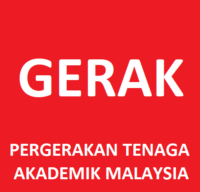“Let’s spark a global discussion on copyright exceptions for education and research!”
by David Edwards
- Text by: David Edwards
- Published: 25.04.2019
- Last edited: 25.04.2019
Today it’s World Intellectual Property Day – a good day to remind us that it’s time to reform copyright law. We need action to change copyright systems that are hindering free expression and failing to promote diverse and prosperous societies for the benefit of all.
Copyright legislation has a major impact on daily teaching and learning activities at all levels of education – from early childhood to higher education.
The need for global copyright reform
As the world continues searching for the best mechanisms to support the implementation of human rights and the sustainable development agenda, it is essential that reform be led by the needs of education and research and the public interest that addresses existing legal gaps – just as the WIPO Marrakech Treaty did. Otherwise we might see more of this or this.
In order to move one step closer to a global consensus, EI together with about 40 other organizations, recently endorsed a draft international treaty on copyright for education and research (TERA). It addresses the legal gaps of cross-border collaboration and exchange and carefully balances the rights of creators and users. TERA would be an improvement for many educators, researchers and students including for those with disabilities. More broadly it would be beneficial for the development of sustainable, innovative and creative societies.
We hope that together with supporting Member States of the World Intellectual Property Organisation we can accelerate progress towards a balanced global copyright instrument. This way WIPO as a specialized UN agency can make its important contribution to the fulfillment of SDG 4 Quality Education but also SDG 5 Gender Equality, SDG 9 Industry, Innovation, and Infrastructure and SDG 10 Reduced Inequalities.
The right to education and copyright
Fair access to materials for teaching and learning is a fundamental part of the right to education and essential to the implementation of SDG 4. Everyone with teaching experience knows that in addition to textbooks and other pre-prepared materials the integration of additional real-life examples and creative works are essential. We as teachers show additional videos in class, paste a motivating image on a worksheet, use different photographs to explain historical events, sing modern songs in class, discuss online news items or engage in online exchanges with classes abroad. And, because today’s World IP Day theme is “Reach for Gold: IP and Sports” let’s add sport news and music for movements to the list.
Copyright legislation is basically all around us. For us to make a difference we need fair copyright legislation that helps us reach a very specific gold: the right to education.
Academic freedom to choose and adapt materials
It is also important to consider this from a professional perspective. It is internationally agreed that “[t]he choice and adaptation of teaching materials” (UNESCO/ILO 1966) is critical to teachers’ academic and professional freedoms. When copyright laws are too restrictive, expensive and bureaucratically burdensome these freedoms are curtailed. Then teachers might be bound to use commercially produced materials, are forced to work in legal grey zones and ultimately are unable to fulfil their public missions. This is particularly important to consider in countries where educational publishing is censored, too expensive or not locally relevant, but also everywhere teachers manage the complex task of adapting teaching materials to diverse student populations.
The appetite for reform is growing – either to update copyright laws to also cover the use of digital works in education or to advance cross-border solutions.
International solutions are needed for modern education
The European Union, for instance, recognizes that “more cross-border access to content online” for collaboration and exchange is essential and has recently passed an EU-wide mandatory copyright exception for education. It also established a text and data mining exception that would allow researchers across Europe to analyze big research data bases.
At international level the WIPO Member States – including the EU – already decided in 2012 that it would be time to move international normative work on this topic further. This has been a long time demand particularly by developing countries.
Hope for progress at WIPO in 2019?
Despite this recognition, progress at WIPO has been slow. Now, seven years later, there might be a chance coming as WIPO’s Standing Committee on Copyright and Related Rights (SCCR) has adopted an Action Plan for education, research and persons with disabilities. There will be regional events in Singapore, Kenya and the Dominican Republic as well as an international conference in Geneva – all dedicated to copyright exceptions and limitations.
We can increase the WIPO momentum by using this International Intellectual Property Day to spark a global discussion, focusing the widespread attention of those with an interest in the right to knowledge and fair access to and use of works for teaching and learning.
We can use this year to share the voice of the profession and there are different things you can do:
1) Endorse TERA – the global draft treaty: http://infojustice.org/tera
2) Join the biannual discussions at WIPO’s Standing Committee on Copyright and Related Rights
3) Join the regional WIPO seminars or the international conference in October in Geneva to share your stories
- The opinions expressed in this blog are those of the author and do not necessarily reflect any official policies or positions of Education International.

